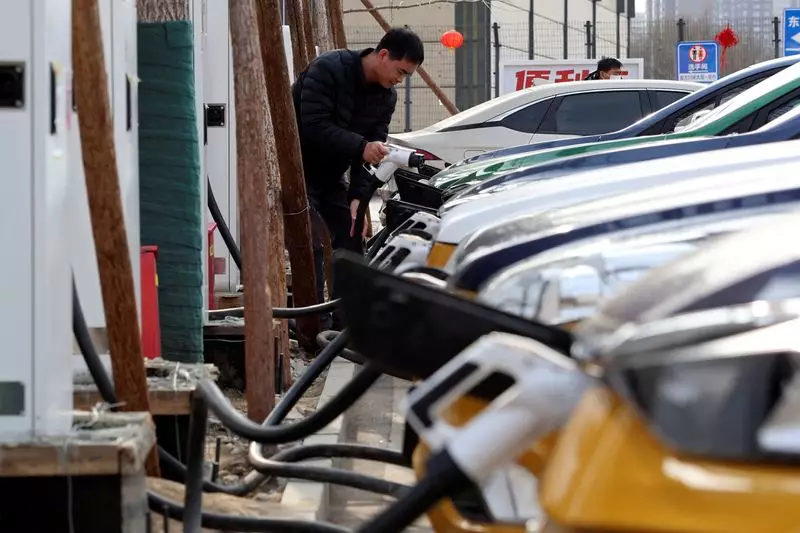The decision by the European Union to impose additional tariffs on Chinese electric vehicles has sparked backlash from China and various stakeholders involved in the dispute. Chinese state news agency Xinhua expressed hope that the EU would reconsider its tariffs and avoid hindering competition in the auto industry. The opposition from China and others emphasizes a desire to de-escalate the situation and find a more amicable resolution.
China has stated its intention to take measures to protect its interests following the EU’s announcement of imposing extra duties on imported Chinese electric cars. The significant increase in tariffs, up to 38.1%, poses a considerable financial burden on Chinese automakers, potentially amounting to billions of euros in additional costs. This move comes after similar actions taken by the United States, further complicating the global trade landscape for Chinese EV manufacturers.
The EU’s decision to implement tariffs on Chinese electric vehicles has raised concerns within the auto industry. European automakers, who derive a significant portion of their sales from China, fear potential repercussions and retaliation from Beijing. German automakers, in particular, are heavily reliant on the Chinese market and are apprehensive about the implications of the tariffs. The influx of lower-cost EVs from Chinese competitors has intensified competition in the European market, prompting resistance to the tariffs from the continent’s auto industry.
Following the news of the EU tariffs, Chinese EV carmaker stocks exhibited mixed reactions. While some companies experienced gains in their stock prices, others faced declines in the aftermath of the announcement. The implementation of tariffs has varied impacts on different manufacturers, with uncertainties surrounding market share and export growth. European automakers, on the other hand, witnessed a dip in their stock prices due to concerns about potential Chinese retaliation.
The trade and economic relations between the EU and China are at a critical juncture, necessitating a strategic and long-term vision to navigate the challenges ahead. As both sides engage in consultations to find a suitable solution, there remains hope for a resolution that avoids escalating tensions. It is imperative for the EU to reconsider its stance and reassess the implications of further escalating trade tensions with China, with a focus on fostering constructive dialogue and collaboration.
The imposition of tariffs on Chinese electric vehicles by the EU has stirred debate and opposition from various stakeholders involved. As the global auto industry grapples with increasing competition and trade tensions, finding a balance between protecting domestic interests and promoting fair competition is essential for sustainable growth and cooperation in the sector. The future trajectory of EU-China trade relations will be shaped by the ability of both parties to navigate challenges and find mutually beneficial solutions.

